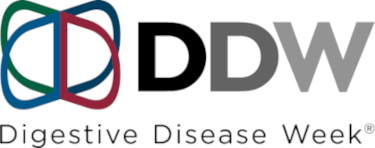363
<i>CATENIBACTERIUM. MITSUOKAI</i> GENERATED QUINOLINIC ACID PROMOTES HEPATOCELLULAR CARCINOGENESIS
Date
May 7, 2023
Explore related products in the following collection:
Tracks
Related Products
INTEGRATIVE MICROBIOME CHARACTERIZATION IDENTIFIES STOOL DYSBIOSIS CONTRIBUTING TO INTRAHEPATIC MICROBIOME AND ITS ASSOCIATION WITH HOST TRANSCRIPTOME IN HEPATOCELLULAR CARCINOMA
BACKGROUND: Non-alcoholic steatohepatitis (NASH), a leading cause of liver-related morbidity and mortality, is highly prevalent in people living with HIV (PLWH).1 Microbial translocation (MT) associated with hepatic inflammation and fibrosis may play a critical role in NASH pathogenesis…
RNA N<sup>6</sup>-METHYLADENOSINE READER YTHDF1 PROMOTES STEMNESS AND DRUG RESISTANCE OF COLORECTAL CANCER THROUGH INDUCING NOTCH1 AND IS A THERAPEUTIC TARGET
BACKGROUND: Immune checkpoint blockade has revolutionized cancer treatment by harnessing the patient’s native anti-tumor T cells, but most colorectal cancers do not respond, for unclear reasons…
<i>LACTOBACILLUS ACIDOPHILUS </i>SUPPRESSES NON-ALCOHOLIC FATTY LIVER DISEASE-ASSOCIATED HEPATOCELLULAR CARCINOMA THROUGH PRODUCING METABOLITE VALERIC ACID
BACKGROUND: Through shotgun metagenomic sequencing, we identified the depletion of probiotic species_ Lactobacillus acidophilus_ in stools of mice with non-alcoholic fatty liver disease-associated hepatocellular carcinoma (NAFLD-HCC)…
<i>CARNOBACTERIUM MALTAROMATICUM</i> ENHANCES INTESTINAL VITAMIN D PRODUCTION TO SUPPRESS FEMALE COLORECTAL CANCER
BACKGROUND: Through shotgun metagenomic sequencing, we identified the depletion of probiotic species_ Lactobacillus acidophilus_ in stools of mice with non-alcoholic fatty liver disease-associated hepatocellular carcinoma (NAFLD-HCC)…


